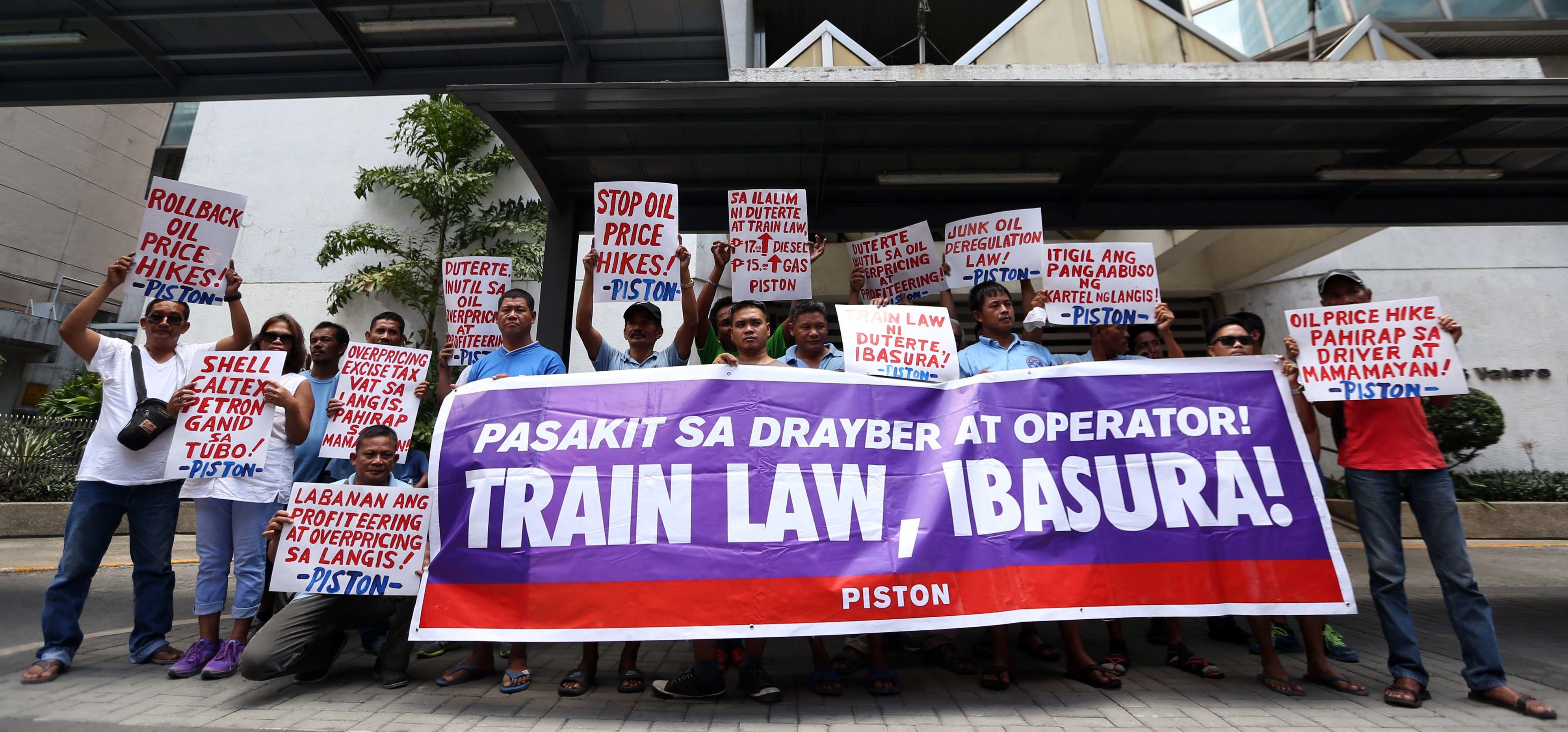
NOTO TRAIN LAW Members of a militant transport group protest against the latest round of
oil price increases and the tax reform law in a picket in front of the offices of Shell Petroleum Corp.
in Makati City on Thursday. —LYN RILLON
A day after President Rodrigo Duterte vowed to push through with the implementation of the Tax Reform for Acceleration and Inclusion Act (TRAIN Law), militant lawmakers went to the Supreme Court in a bid to stop him from doing so.
In its 71-page reply, petitioners maintained that the law is unconstitutional.
Petitioners ACT Teachers Rep. Antonio Tinio, Bayan Muna Rep. Carlos Zarate, and Anakpawis Rep. Ariel “Ka Ayik” Casilao assisted by the National Union of Peoples’ Lawyers (NUPL) said the law was procedurally infirm because it was approved without a quorum as required in the Constitution.
“The TRAIN Law was not validly passed. It became law in violation of the Sections 16 (2) and 27 (1) of Article VI of the Constitution, among others,” petitioners said.
Zarate and company contested the argument of the solicitor general that official journals of the House during deliberations on the TRAIN Law on Dec. 13 last year where 232 out of a total of 295 members were present proved that the law was validly passed.
“There is no evidence to prove the due enactment of RA 10963. On the other hand, there are several pieces of evidence proving that it was passed in violation of the quorum requirement in Section 16 (2), Article VI of the 1987 Constitution and the requirement of a bill passed by Congress in Section 27, Article VI,” petitioners claimed.
Section 16 (2), Article 6 of the 1987 Constitution and Section 75 of Rule XI of the House Rules both require the House to comply with the quorum requirement of the majority of the House membership before they can do any legislative business.
“The absence of a quorum and a vote are facts pointing to prima facie grave abuse of discretion which Respondents attempt to throw a veil over,” petitioners added.
The TRAIN law, which is the centerpiece of the Duterte administration’s effort to reform taxation and earn additional revenues, promises lower personal income tax rates and increase excise taxes on petroleum products, automobiles, sugar-sweetened beverages and tobacco.